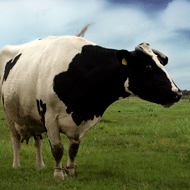bTB: dual host element 'ignored for too long'

Bovine TB costs the UK Government £100 million a year and has a serious impact on the cattle farming industry.
Reducing the spread of bovine TB from badger-to-badger has only a 'modest impact' on cattle infection, according to the results of a new study by the universities of Bristol and Cambridge.
Control strategies that target badger-to-cattle and cattle-to-cattle transmission are likely to be more effective, said researchers.
Their findings, which have been published in the Royal Society Proceedings B, suggest feedback between cattle and badgers is 'critical' for our understanding and control of the disease, which costs the UK Government around £100 million a year.
Prior to this study, research has generally focused on the disease in cattle or badgers, but not both.
Professor James Wood, head of the department of veterinary medicine at Cambridge, said: "The dual host element of the disease has been ignored for far too long in the public debate about the disease."
Scientists used mathematical modelling techniques alongside data from various sources to predict the impact of bTB controls. Their work suggests that while bTB is likely to be almost eradicated in badgers and cattle when taken in isolation. Control is likely to be far more challenging, however, when both species are considered together.
Lead author Dr Ellen Brooks-Pollock, from the University of Bristol, explained: "Our findings show that in areas with badger infection, cattle-to-badger and badger-to-cattle transmission is critical to the whole system. You can’t just consider one species in isolation.
"Reducing badger-to-cattle transmission is likely to be more effective than reducing prevalence in badgers alone. This may have particular implications for badger vaccination programmes, depending on local incidence of badger infection."



 The latest
The latest